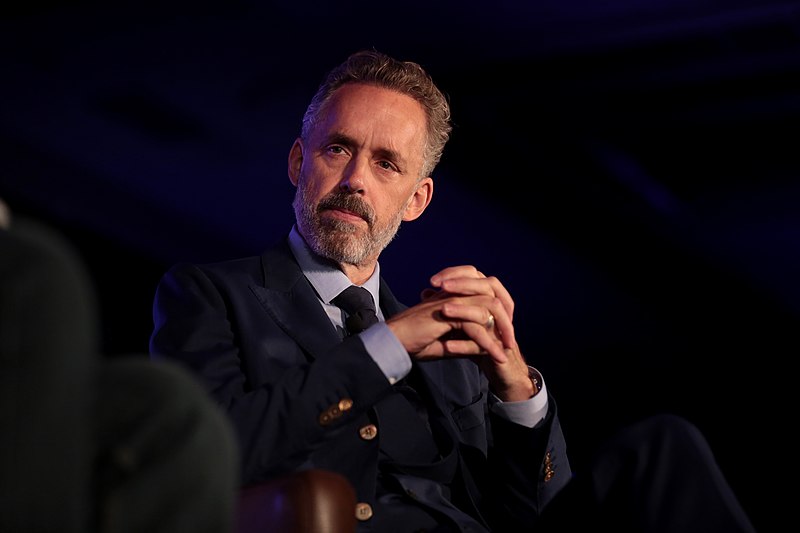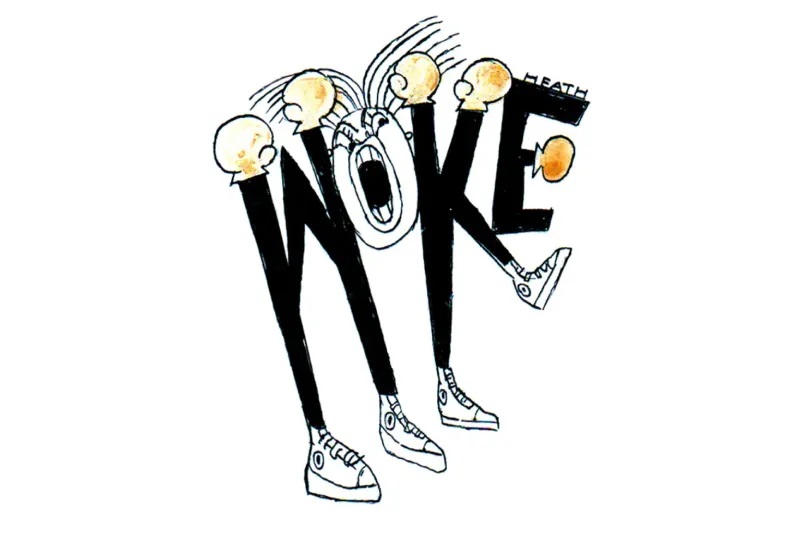If only Hamlet had known Jordan Peterson. To be or not to be, Dr Peterson believes, is indeed the burning question — but it’s a question that can be resolved decisively in favor of Being with a capital B. And he’s willing to walk any modern-day Hamlet who cares to listen through the math.
This reasoned position in favor of existence is at the heart of Jordan Peterson’s latest book, Beyond Chaos: 12 More Rules for Life. It’s also, I’d argue, at the heart of his popular appeal. Sure, his undeniable charisma doesn’t hurt; and of course, he’s brilliant, well-read and articulate. But so are many other public intellectuals. What’s unique about Peterson is his insistence that we can use human observation and reason, guided by traditional wisdom (contained in ‘myths’), to determine that existence is objectively better than non-existence, and that there are demonstrably good reasons (and good ways) to engage energetically in the business of living.
It may be self-help, but it’s self-help for people whose problems are fundamentally philosophical. Why take on responsibility if it will bring me suffering? What does it matter if I tell the truth? Why get out of bed in the morning if life is meaningless — or worse, evil?
You might think that questioning the value of one’s existence is a problem restricted to intellectuals, but not so. Dr Peterson cites a study showing that one in five adults engage in serious self-harm during their lifetime. He discusses the non-negligible influence of antinatalists, who hold that, all things considered, it would be best if the human race went extinct. In this context you might also recall the more moderate population control advocates who argue that to reduce the number of living humans is to reduce suffering. And though Peterson doesn’t tackle this theme, the spread and gradual liberalization of assisted suicide and euthanasia laws — in Dr Peterson’s native Canada, even the mentally ill are now eligible for euthanasia — reveal a majority consensus to the effect that human life is not, objectively speaking, worthwhile. If you’re feeling sufficiently miserable, maybe your life has become one of the worthless ones. It’s totally up to you, of course — but society would be just as happy if you gracefully shuffled off this mortal coil. Here’s a lethal cocktail. So glad you could make this dignified choice.
Art historian Kenneth Clark famously said that civilization requires confidence — confidence in the society in which we live, in its philosophy and laws, and in our own mental powers. Yet here we are, heirs to the riches of Western civilization, so lacking in confidence that we aren’t even sure we should be alive. What on earth happened?
Well, the Reformation happened. That’s me, not Dr Peterson, speaking. But has he, I wonder, spent time looking into the pernicious (and extraordinarily influential) effects of Martin Luther’s anti-intellectualism? It seems to me that Dr Peterson has received such an overwhelming response to his work because he has, either instinctively or deliberately, rejected Luther’s anti-intellectualism and embraced the power of reason and human experience to examine and reaffirm, where justified, common-sense, traditional perspectives on what’s good and what’s bad, making as few assumptions as possible and drawing on his real-life experience as a clinical psychologist. People went wild for this, and I think it’s because they are starved for a realist, reason-based, philosophy of life.
What was Luther’s problem with the intellect? Well, he had no time for philosophy — he called it ‘an old woman that stinks of Greece’ — and less for reason, which he called something even nastier. He alleged that reason was too damaged by original sin to reach truthful conclusions about religion, metaphysics or ethics. His subjectivism was a reaction against the golden age of reason that had preceded him: scholasticism. The scholastics are much mocked for supposedly discussing how many angels could fit on the head of a pin (frankly, I think that’s a hoax. Any scholastic worth his salt would know that angels, being spiritual, have no physical properties and therefore can’t take up space). But scholastics were absolutely confident that reason could be used to reach truth in any and all fields, including religion and philosophy. Some religious truths could only be known through revelation, but the authority and meaning of revelation could be reasoned about, and while mysteries, like the Trinity, transcended reason, it remained reasonable to believe them.
The Enlightenment adopted Luther’s attitude rather than the scholastics As Dr Peterson points out in Beyond Order, a fundamental principle of the Enlightenment was ‘that reality is the exclusive domain of the objective’. But by accepting Luther’s assumption that religion was a matter of purely subjective experience, they agreed that objectively true conclusions could not be reached in matters of religion and what moderns call ‘values’. St Thomas, with his famous five proofs of the existence of God from reason and his extensive development of Aristotelian metaphysics and ethics, would never have conceded such an arbitrary division. But because Luther had conveniently declared reason to be blinded by sin, no one could ask him to logically prove that religion was a matter of purely subjective interpretation. It just was, because he felt that way. And that was good enough for the Enlightenment, whose style would have been rather cramped by having to recognize objective religious facts anyway.
Fast-forward to the 2000s, and here we are, no longer capable of coming to rational conclusions about whether existing and taking on personal responsibility and staying married and telling the truth are objectively superior to their opposites. Enter Jordan Peterson, who openly admits that he has been looking for certainty (is that the same thing as truth?) for decades, and that he has been using reason to try to attain it. Like Aristotle, although doubtless by a different route, he has entered the field of metaphysics by determining that being is superior to non-being. Like Aquinas, his thought process involves coming up with an idea and opposing it to the most difficult objections he can come up with in order to see if it holds water.
Add to the appeal of intellectual integrity the fact that Peterson uses captivating, poetic imagery to illustrate his arguments — you are never quite sure if the Jungian/Gnostic imagery is intended to be taken literally or simply metaphorically. I wonder, too, if those who think he’s dour need a laugh track to recognize jokes, because he’s hilariously deadpan. In Beyond Order he discusses God’s calling of the patriarch Abraham: ‘The biblical account insists that Abraham stayed safely ensconced within his father’s tent until he was 75 years old (a late start, even by today’s standards).’ (!)
Peterson likes to point out the prophetic ability of great artists; well, Shakespeare in Hamlet prophesied the consequences of the anti-intellectualist bent of his age. ‘Doubt thou the stars are fire/ Doubt that the sun doth move/ Doubt truth to be a liar/ But never doubt I love,’ says Hamlet, who has been studying in Luther’s own city, Wittenberg. The loss of confidence in reason’s ability to attain truth and resolve moral problems leaves Hamlet — and postmodernity — in a state of tragic paralysis. You can only applaud Peterson’s efforts to break free.

























